
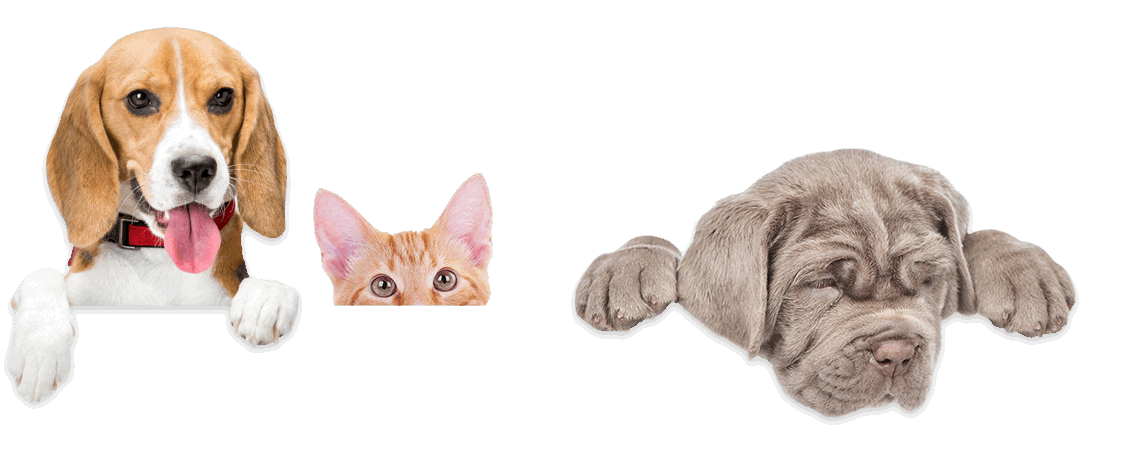
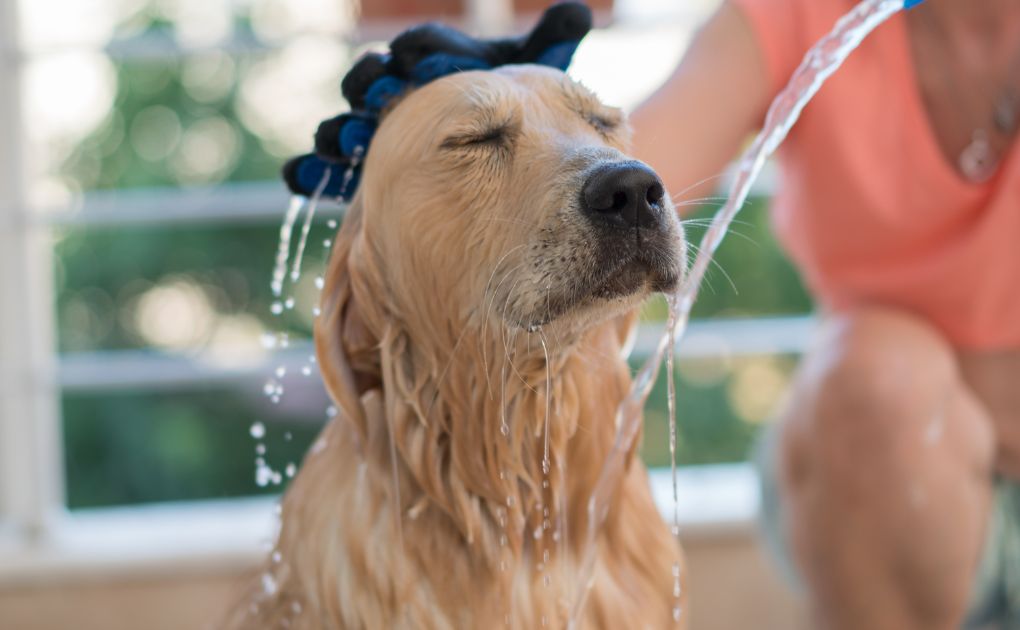
It is essential for your dog’s welfare to be groomed regularly.
Grooming helps to:
We should try to get our dogs used to regularly being groomed as early in their life as possible (preferably as a pup). It is important that our dogs are comfortable and happy being groomed both at home or by a professional groomer. If we can get into a consistent grooming routine with our dogs it can help them feel relaxed in similar situations such as vet visits.
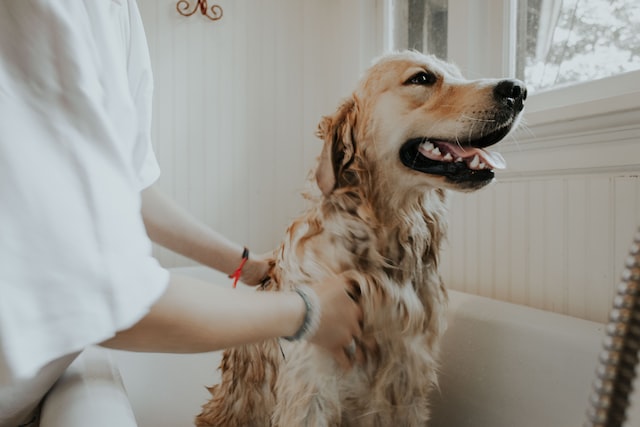
Grooming is the general cleaning of a dog. This can include brushing, trimming, clipping, washing, eye and ear cleaning and nail clipping.
Short-haired, smooth-coated breeds should be brushed at least once a week. A long-coat breed should be brushed at least once a week. This is to help keep their fur knot and matt free between washes.
Nail clipping is generally required every 4 to 12 weeks depending on breed.
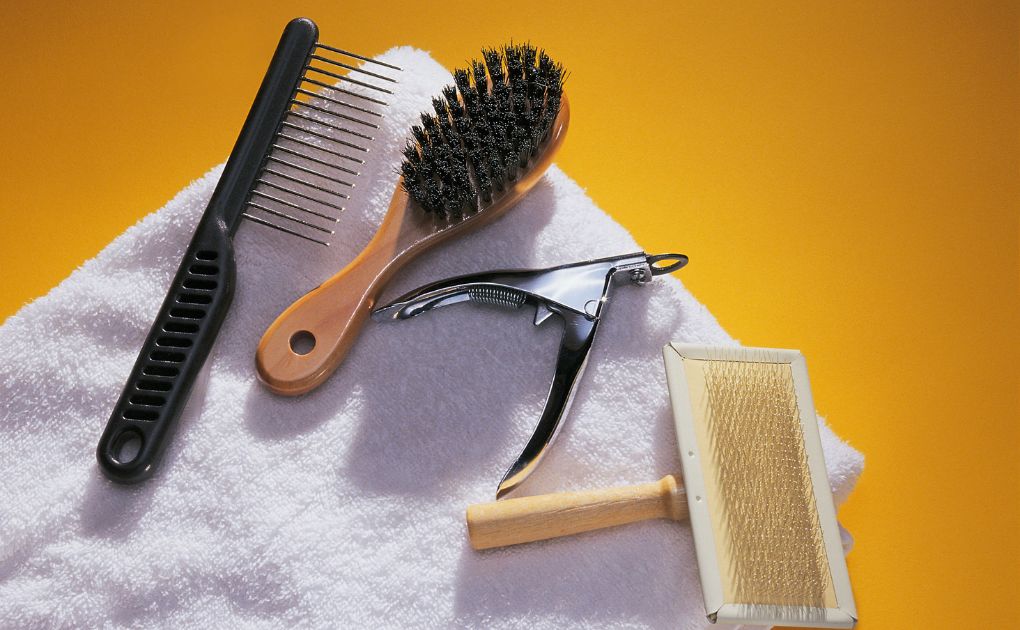
There are a wide variety of brushes and combs for dogs:
Rubber brushes – These are perfect for removing dead fur and massaging the skin. This can help to encourage natural oils in the fur, which make your dog’s coat shiny and healthy. These brushes work best on short and medium coat breeds.
De-shedding tools – These brushes remove any dead fur from your dog’s undercoat, whilst brushing through the topcoat and removing any dirt. These tools can be purchased for any length of coat.
Bristle brush – These brushes are brilliant for finishing off grooming or for a quick brush. They brush through your dog’s topcoat, removing all dead fur and dirt while stimulating natural oil production. These are perfect for short hair breeds.
You should consult your trusted vet on this, as it’s often not necessary and sometimes depends on the colour of your dogs nails to be able to see where to cut down to. If you walk your dog on pavements or roads, their claws will naturally wear down. Sometimes your dog’s dew claws can become overgrown as they don’t reach the ground during walking.
You should aim to clean your dog’s eyes daily, to prevent any build-up. You can use a small, moist cotton ball to carefully wipe any build-up from the corner of your dog’s eye. Ensure to gently wipe with a downward motion.
You should clean your dog’s ears once a month. You can use a damp piece of cotton wool to gently clean out any dirt and excess wax. Then insert the tip of the ear cleaner into their ear canal and squeeze the bottle. Once this is done wipe away any excess with another piece of cotton wool.
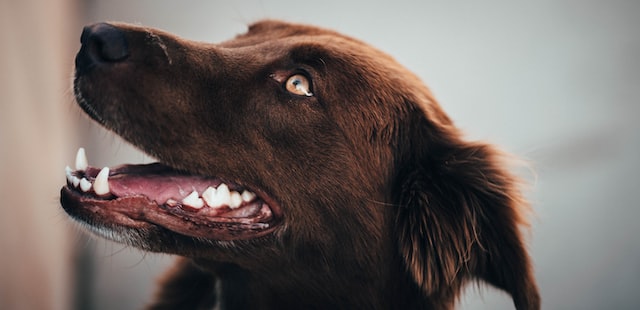
You should clean your dog’s teeth daily to help fight of plague and dental diseases such as gum disease. You can use a dog-friendly toothpaste and doggy toothbrush to clean their teeth.

According to the Blue Cross (2023), “Dogs are better left without being washed for as long as possible.” We should only bathe dogs if they are dirty or have skin problems that require them to regularly bathe. Washing your dog too much can strip their coat of all those good natural oils we mentioned earlier
If you are washing your dog at home, you can use the bathtub with a non-slip mat or, weather permitting, outside with a garden hose.
Ensure to detangle any matts and knots in your dog’s fur before washing as they may get worse during shampooing.
Use a doggy shampoo as human shampoo can be dangerous for dogs.
Completely cover your dog with water before applying the shampoo.
Ensure to rinse your dog’s coat thoroughly as any residue can irritate their skin.
Towel dry your dog thoroughly or, if they are comfortable with one, use a hairdryer.
Most importantly, if your dog is showing a negative reaction to grooming- whether it is brushing, bathing or nail clipping, do not force them. Instead, stop and speak to a professional groomer or your trusted vet for advice.